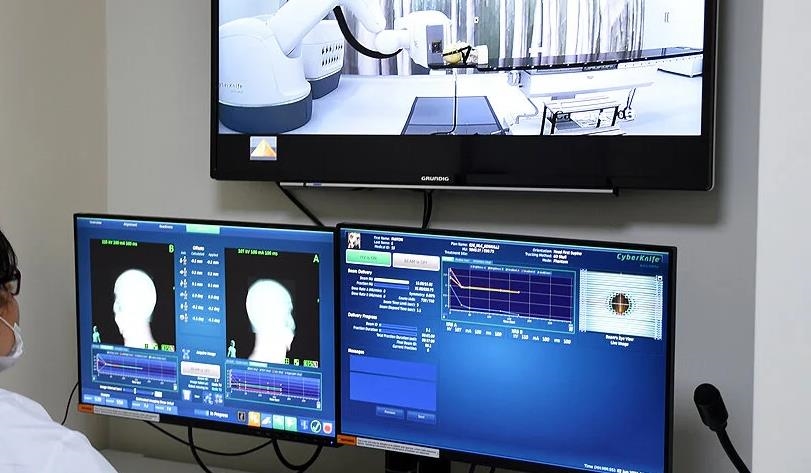Experts call for access to health technologies in battle against cancer
There is an urgent need to build bridges toward ‘future where cancer is no longer a death sentence,’ expert says

KIGALI, Rwanda
Health care professionals Friday called for access to digital health technologies in the battle against cancer to improve the chances of diagnosis, treatment and potential curing of the disease.
Speaking at the inaugural E3 international cancer conference in Kigali, the capital of Rwanda, experts said access to new technologies such as artificial intelligence, endoscopic images and virtual reality could improve early cancer detection and treatment.
Jacques Morescaux, the founder of IRCAD, a leading institute for minimally invasive surgery and endoscopy, called on developing nations to learn from other countries, where medics use high-tech to address certain health issues such as remote surgeries.
With such technologies, “it is estimated that the accuracy of early cancer detection is over 90%, far exceeding the ability of general doctors,” he said.
According to experts, investment in early detection, including screening is critical so that the disease is caught at a mostly manageable stage.
Held under the theme Bridging the Gap: Advancing Cancer Care, Research, and Education in Africa beyond the Post-COVID Era, the two-day conference discussed cancer care, research, and education in Africa.
Participants from around the world noted that addressing disparities, promoting collaboration, and driving transformative changes are also crucial in tackling cancer.
There is “an urgent need to build bridges that connect us, transcend boundaries, and lead us to a future where cancer is no longer a death sentence,” said John Koshy, the head of the organizing committee of the conference.
For Albert Tuyishime, the head of the disease prevention and control department at the Rwanda Biomedical Center, awareness and early detection efforts can increase the survival rate of cancer patients in Africa.
Tuyishime said that sensitizing people and primary health care providers about the risks and signs of cancer can go a long way in helping them take steps to reduce the risk factors of developing the disease.
In 2022, there were an estimated 20 million new cancer cases and 9.7 million cancer-related deaths worldwide, according to the World Health Organization (WHO).
Cancer is responsible for nearly one in six deaths in the African region, with the rising prevalence of the disease on the continent directly connected to the high incidence of key risk factors, such as tobacco use, physical inactivity and unhealthy diets.
Anadolu Agency website contains only a portion of the news stories offered to subscribers in the AA News Broadcasting System (HAS), and in summarized form. Please contact us for subscription options.

